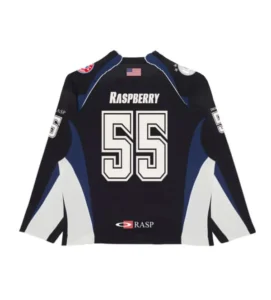The Growing Craze for Licensed Sports Merchandise
In today’s interconnected world, sports are more than games—they’re powerful cultural forces. And for millions of fans across the globe, owning a piece of that passion through licensed sports merchandise is more than just a purchase; it’s an expression of identity. Whether it’s wearing a Messi jersey in Mumbai or a Yankees cap in Tokyo, fans are investing in more than fabric and logos—they’re buying into a legacy, a community, and a sense of belonging.
The licensed sports merchandise market has evolved far beyond team jerseys and logo-bearing caps. From footwear and fitness accessories to gaming gear, collectibles, and even home décor, sports merchandise has become a vibrant, diversified ecosystem. As global fandom continues to expand, driven by digital access and international leagues’ outreach, demand for authentic, officially licensed products is breaking records.
Expert Market Research Insight — Trends Shaping the Licensed Sports Merchandise Market
According to Expert Market Research, the licensed sports merchandise market is witnessing robust growth, fueled by the globalization of sports, rising disposable incomes, and the growing appeal of athleisure. The firm notes that digital retail platforms, athlete brand collaborations, and the blending of sportswear with streetwear have significantly influenced consumer behavior in recent years.
As per their analysis, e-commerce platforms and official team stores are becoming primary channels for merchandise sales. Expert Market Research highlights that consumers now prioritize authenticity and official licensing—leading to stricter regulations and better branding efforts across leagues. They also emphasize the importance of sustainability, with eco-friendly merchandise lines gaining popularity, especially among younger fans. This market isn’t just about fandom anymore—it’s becoming a reflection of broader cultural, ethical, and fashion-conscious trends.
The Emotional Economics of Fan Loyalty
What fuels this booming demand? The answer lies in the emotional economics of sports fandom. Fans don’t just support teams—they live them. Merchandise becomes a personal statement, a badge of honor, and even a connection to childhood memories or cultural roots. This emotional connection is what makes the licensed merchandise sector so unique—it isn’t just about the product, but the story it tells and the emotion it evokes.
For many, wearing a jersey is about reliving a historic win; collecting memorabilia is about preserving legacy; and decorating a room in team colors is about creating a shrine to loyalty. The passion of fans turns ordinary goods into emotionally charged symbols, and that passion translates into billions in annual sales globally.
Regional Insights: How Geography Shapes Fandom and Fashion
While the love for sports is universal, regional preferences in merchandise vary significantly. In North America, the NFL, NBA, MLB, and NHL dominate the merchandise space. Fans are known for going all-out—wearing full kits on game days, decorating their cars and homes with team paraphernalia, and splurging on collectibles.
In Europe, football (soccer) reigns supreme. From Liverpool jerseys in the UK to Real Madrid scarves in Spain, fan merchandise is a daily sight. The UEFA Champions League has extended these loyalties across borders, turning clubs into global brands. Meanwhile, Formula 1 is gaining momentum in the region with growing merchandise sales for teams like Mercedes and Red Bull Racing.
Asia-Pacific is a rapidly emerging hotspot. Thanks to digital platforms, young fans in India, China, and Southeast Asia are tuning in to the Premier League, NBA, and cricket leagues like the IPL. Licensed merchandise is becoming aspirational—especially among youth who view team gear as a mix of status symbol and streetwear fashion. In Australia, rugby and cricket merchandise continue to hold strong cultural relevance.
Latin America showcases intense football devotion, especially for national teams and clubs like Boca Juniors or Flamengo. In countries like Brazil and Argentina, fans proudly wear team jerseys as part of everyday attire, and licensed products often become family heirlooms.
Beyond Jerseys: The Rise of Lifestyle and Digital Merchandise
One of the most fascinating shifts in the licensed sports merchandise market is the diversification into lifestyle and digital goods. Collaborations between athletes and fashion brands are producing limited-edition sneakers, jackets, and even fragrance lines that blend sports identity with high fashion. Merchandise is no longer limited to match-day—it’s now an all-day, everyday expression.
Then there’s the rise of digital merchandise. NFTs (non-fungible tokens), virtual jerseys, and digital collectibles are taking fan engagement to a new level. Fantasy leagues and esports teams have also joined the merchandise game, offering apparel and accessories for their digital fans. As the metaverse expands, owning virtual sports gear may become as commonplace as wearing a jersey in the physical world.
The Impact of Big Events and Pop Culture
Major sporting events like the FIFA World Cup, Super Bowl, or the Olympics often trigger spikes in merchandise sales. The success of teams and star athletes directly affects demand—fans want to own a part of history. For instance, Lionel Messi’s move to Inter Miami instantly boosted the team’s merchandise sales, introducing the brand to a whole new global audience.
Pop culture also plays a huge role. When athletes appear in commercials, movies, or social media trends, their merchandise becomes more than sportswear—it becomes cultural currency. TV series, music videos, and influencers often spotlight sports merchandise, further blurring the lines between fandom, fashion, and lifestyle.
What the Future Holds: Personalization and Tech Integration
Looking ahead, personalization and technology are set to redefine the licensed sports merchandise experience. From personalized jerseys to AR-based shopping that lets fans preview merchandise before buying, innovation will be central to market evolution. Customizable items—be it a jersey with your name or a virtual collectible card with your favorite match moment—are adding a new layer of intimacy and engagement.
Furthermore, with AI-driven recommendation engines and data analytics, fans are now being served merchandise suggestions that closely match their preferences and behavior. Retailers and brands are investing heavily in these tools to create a seamless and hyper-personalized fan experience.

